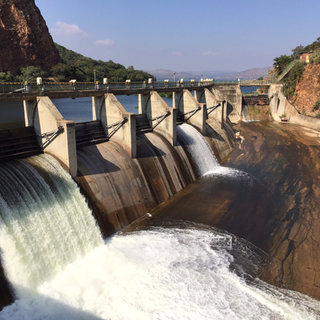According to the South African government, the Rouxville drinking water project in the Free State province will be operational by the end of 2021. Lohan Construction Industry was awarded the project and is in the process of renovating the facility. Also Read: Paarl Rock- Conradie Park development in Cape Town, South Africa
The Rouxville drinking water project in South Africa’s Free State is scheduled to reopen by the end of 2021. This was estimated by South African officials who inspected the site during an inspection visit earlier this year.
According to a press statement from the Presidency of the Republic of South Africa, the Rouxville drinking water facility modernisation project, which began in March 2021, is already 94% complete.
The project involved the construction of a new 4.8-kilometre riser pipe linking the drinking water plant to three existing reservoirs. The project also consists of upgrading the five existing boreholes, according to the same sources.
The Rouxville drinking water plant will have a production capacity of 3,200 m3 per day at the time of its completion.
Lohan Construction Industry, which is based in Bloemfontein in the Free State region, is rehabilitating the facility. The company specialises in numerous development and supply areas. Among these are infrastructure development, transportation, earthworks, roads, telecommunications, pipelines, mechanical and electrical engineering, and other aspects of the civil construction sector.
The project’s objective is to improve the drinking water supply in Rouxville and the surrounding villages. The upgraded water treatment facility will lower the Rainbow Nation’s drinking water demands. South African authorities are also investigating unconventional water supplies. Among these are saltwater desalination and brackish groundwater desalination that may ease the country’s water problem.
In the near future, an Eastern Cape saltwater desalination facility is also scheduled for construction. The Rouxville Water facility, which will be located in Nelson Mandela Bay, will have a capacity of 15 000 m3. 1.25 million people will benefit from this project’s provision of safe drinking water.

Leave a Reply